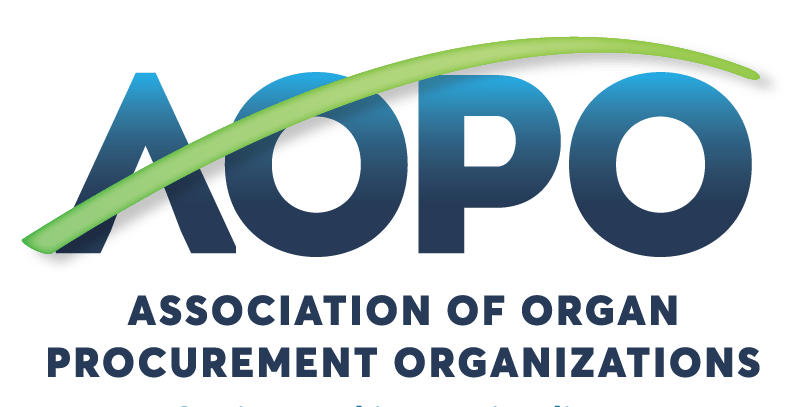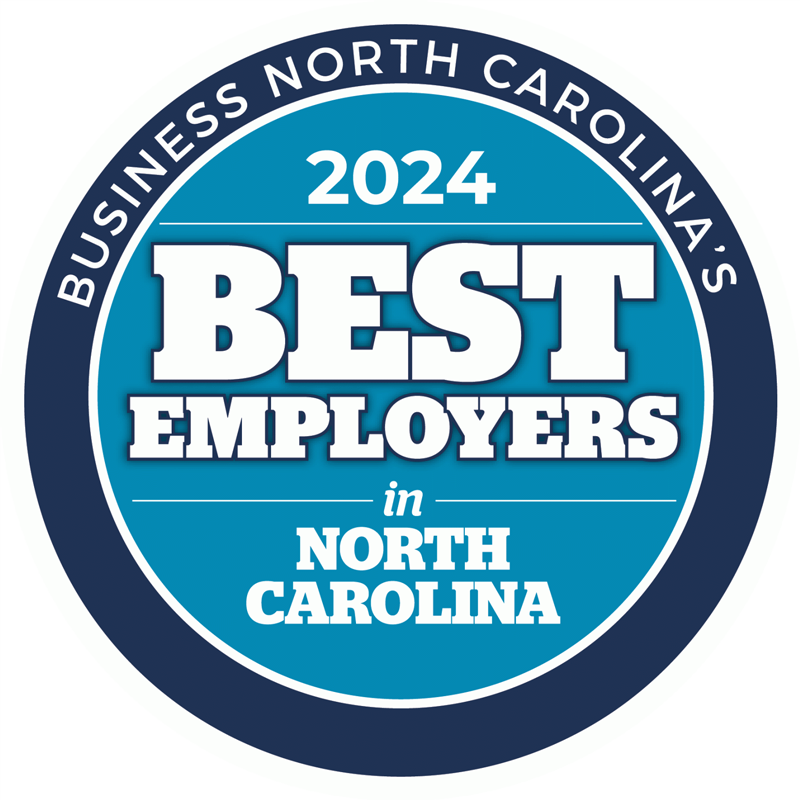As HonorBridge celebrates its 40th anniversary in 2025, HonorBridge’s former President and CEO, Lloyd Jordan, shares a story filled with unexpected beginnings, people-centered accomplishments, not one (but two!) name changes, and an unyielding dedication to organ, eye, and tissue donation that has spanned decades.
What led you into the field of organ donation?
I got involved almost by chance. There was a job opening in Greenville for someone with an accounting background—I’m a CPA—and my wife and I wanted to move there. Back then, we still checked newspaper ads. I applied, got an interview, and later learned that the person who interviewed me was influenced by his friend, who thought I came from a great family! The funny part was that it wasn’t my family, I didn’t know those people! It felt like a twist of fate. So, I started at Carolina Organ Procurement Organization (COPA) in 1986 as a consultant when they were transitioning to become financially independent from ECU’s School of Business. I became the President & CEO in 1987.
Reflecting on your time as CEO, what accomplishments are you most proud of?
I was CEO for almost 30 years. My last day was March 31, 2016. When I started, there were just 17 employees, and we coordinated around 30 organ donations annually. By the time I left, we had grown to over 200 donors annually in some years, so we had steady increases. But what I’m most proud of is the team I built. As you get older, you think more about your relationships with people more than you do about anything you might have done. Many of the leaders at HonorBridge today, like Danielle Bumarch, Kirk Mizelle, Kim Koontz, and Melinda Locklear, were people I hired directly. I still remember calling Danielle about becoming COO when she was living in Chicago. So, seeing the people I hired firsthand thrive and continue to carry the mission forward has been incredibly rewarding.
How did the organization’s mission evolve during your leadership?
The wording of the mission has changed a few times, but our focus was always to maximize the benefits of organ and tissue donation, which is a broad concept. You’ve got to provide the best support to donor families, ensuring the donor was honored as the true hero—which was never just a slogan, it was reality. We also aimed to meet the needs of transplant centers, who are unique in their practices and needs. One of the biggest accomplishments was evolving from a transplant center-driven board to one that represented a broader community of stakeholders. This included adding donor families and transplant recipients, which truly reflected our commitment to all those involved in the donation process. That’s something I’m really proud of. That being said, I’ve always felt very blessed, because our transplant center appointees were wonderful people. Ben Weaver, former Dean of ECU’s School of Business, was the first non-surgeon president of the board. We also had Dr. Randy Bollinger at Duke University and Dr. Stanley Mandel at UNC in the early days. They were all highly ethical people who influenced all of us in such positive ways. So, the fact that we were able to get our stakeholders represented on the board was a wonderful thing, but it wasn’t because we had a bad board. Dr. Randy Bollinger, Dr. Stanley Mandel, and Ben Weaver were probably the three most influential non-employees at COPA (renamed Carolina Donor Services in 1999 and HonorBridge in 2021).
Is there a story involving a donor family or recipient that left a lasting impression on you?
I’ll never forget a story shared by Carol Wargo, who eventually ended up on our board, even if I live to be 1000. She had gotten the first chapter of Transplant Recipient International (TRIO) started here in Raleigh, and I’d gone to one of their first meetings. She’d had a heart and lung transplant, which was especially tough back in those days, but she had done well. At that meeting she spoke about what the transplant had meant to her and how she had lived to see her son play little league—something she thought she’d never experience. I was coaching my son’s team at the time, and her words hit me hard. I was so focused on competition, winning, and teaching the kids to play hard, and I realized how much I took for granted. That night, driving home, I couldn’t stop thinking about it. It shifted my perspective, helping me appreciate what our organization makes possible. There’s a lot of Carol Wargos out there.
During your time in the organ procurement field, what were some of the biggest changes you noticed?
The regulatory environment changed the most. Early on, our work was lifesaving and relatively new, so regulations were lighter. But over time, performance standards became more stringent, though they sometimes missed the mark in measuring success accurately. Developing effective performance measures has been an ongoing challenge in our industry. It’s necessary to have standards, but they must truly reflect quality service.
How did community outreach and education efforts evolve during your tenure?
When I started, we had 17 people, and no one dedicated solely to education. The organ donation coordinators did everything. Over time, we hired a director for public and professional education, which was a big milestone. We measured success by the percentage of people with heart symbols on their licenses, especially after the Heart Prevails law made it a legal decision. Public education remains crucial, as many people still don’t consider organ donation or talk about death. Reaching those individuals and encouraging them to take action is one of the most significant measures of success.
What advice would you give to current and future leaders at HonorBridge as the organization continues to grow?
I think the first thing I’d say is you grow with good people, so make sure you take care of your people—and that’s an evolution. What’s good today isn’t necessarily good tomorrow. Second, I’d say make sure that you exude what you want your employees to exude in terms of focusing on the mission. I think that’s extremely important, because it’s a service organization. When I left, I wrote everyone who worked here a short note. I did that for one reason: I wanted them all to know that they were the ones who made my job easy. As we got bigger and bigger, my job actually got better and easier because of the good people we were able to hire. So that, to me, is the most important thing. Hire the type of people you want to represent the organization.
As you look back on HonorBridge’s 40-year journey, what are your hopes for the next 40 years?
I think HonorBridge’s new building is a testament to the current leadership’s commitment, but I hope HonorBridge remains a state-of-the-art organization in every aspect. Quality—of service, care, and dedication—should continue to be the priority for everyone they serve: recipients, donor families, the public, and employees alike. Staying true to the mission and pushing forward with excellence is all you can ask for.
I tell my grandson that I won’t love him until infinity, I’ll love him until I can see infinity, because I’ll never stop loving him more and more. That’s the kind of dedication HonorBridge needs—a drive that never settles, always aiming higher. You can’t ever be satisfied.
What legacy do you hope your leadership has left at HonorBridge and in the field of organ donation?
I’d say integrity is the key word. I emphasized that we had to perform our work with absolute integrity because of the nature of what we do—there’s no room for error. You have to stand behind your actions, and you have to carry them out with honesty. I also hope I left a legacy of understanding when it comes to certain mistakes. What I found over the years is that those who work the hardest sometimes make the most mistakes; everyone makes mistakes, but we have to recognize that some, particularly those involving integrity, are unacceptable. So, there’s a balance to maintain.
If you asked people who know me, I hope they’d say that I was reliable, honest, and willing to speak the hard truths. I always believed ‘a hard truth is better than a nice lie.’
Is there anything else you’d like to add?
I’m glad Danielle stepped into my role. Since I left, I’ve made a point to stay out of the day-to-day, and I always tell people I’m not discussing business now. But years ago, when my COO left, I remember thinking Danielle had all the qualities and skill sets that would make her an excellent fit. When they started the national search for a new President and CEO, I did what I could on the selection committee to support her. She was chosen, and that felt right—I’d hired her with the idea that she’d make a strong successor someday.
Honestly, I don’t miss the job itself; the day I left, I was mentally ready. But I do miss the people. I was so fortunate, and I believe anyone working in this industry long-term is incredibly lucky and blessed. The same goes for HonorBridge—if you’re here for an extended time, you’re fortunate. It’s not an easy job, and it’s not for everyone, but I believe the decision-makers here genuinely try to do what’s right and what’s best for everyone involved—and that’s always been true.



